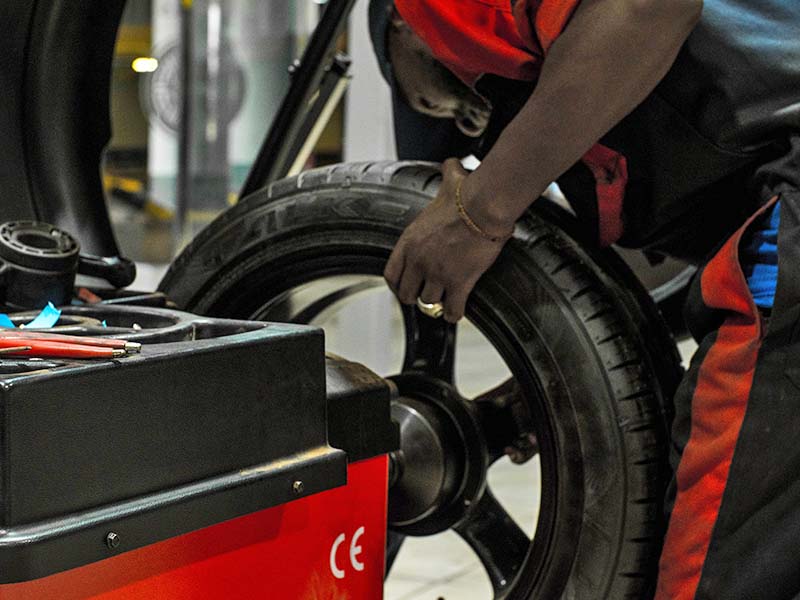COMPUTERISED WHEEL BALANCING
The appropriate distribution of weight around a spinning tyre and wheel assembly is referred to as wheel balance. Poor wheel balance can have a significant influence on your vehicle and your safety. Proper wheel balancing ensures that the wheels do not have a heavy area when spinning, which can cause vibration and premature wear of the tyres, struts, shocks, and other steering and suspension components. Balanced wheels, when paired with good wheel alignment, guarantee smooth and comfortable driving.
Maintenance Tips/Suggestions:
Vibration and loudness are the most prevalent symptoms of imbalanced tyres. Driving with an out-of-balance wheel causes the wheel to bounce down the road rather than spin smoothly. This can have an impact on your car’s speed, handling, and mileage. Many modern vehicles feature lightweight suspension systems and are thus more susceptible to unbalance than older vehicles. It’s a good idea to get your car’s wheels balanced every 6,000 miles when you rotate the tyres. It is not unusual for wheels to lose a wheel weight from time to time; thus, frequent balancing reduces the impact of imbalanced wheels on your vehicle.

